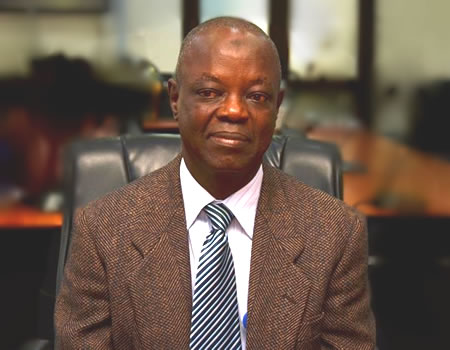Vice-chancellor, University of Ilorin, Professor Sulyman Age Abdulkareem, has allayed fears among education stakeholders in and outside the country over the return of the university to mainstream Academic Staff Union of Universities (ASUU).
The UNILORIN chapter of ASUU had been suspended by the national body for about two decades until recently when it was reabsorbed.
But addressing journalists in Ilorin on Monday at one of the events to celebrate the 35th convocation of the institution, Professor Abdulkareem said the school now has a unanimously elected and inclusive local ASUU leadership and executives that “believe in constructive struggle rather than destructive agitation.”
Order Naira Marley to remove red bag from dock, EFCC asks court
“Let me allay the fear by disclosing that we now have a unanimously elected and inclusive local ASUU leadership and executives that are deeply embedded with the UNIOLORIN spirit of selflessness; that believe in constructive struggle rather than destructive agitation; that valorise the glory that the university had accumulatively gained over some years would not want such glory carelessly frittered away”.
He particularly expressed confidence in the strength of character and independent-mindedness of the chairman of the local ASUU chapter, Professor M. S. Ajao.
“I also rely on the behind-the-scene mentoring and guidance of the Elders’ Forum of ASUU on our campus, which I believe will help in mediating for enduring peace and sustainability of stability on our campus in spite of our integration with the national ASUU,” he added.
He also opined that although ASUU’s roles in ensuring access, quality and effective education as well as its effective management of higher education cannot be ignored, the time has come “to ensure enduring academic stability on our campuses by changing their old-fashioned style of agitations.”
Abdulkareem noted that the confrontational tactics that brought ASUU success during the military era have become largely unnecessary, and could usefully give way to a more service-oriented role in support of union members; otherwise they might soon lose their hard-won credibility with the general public.
“I believe the national executives of ASUU are reflecting on this instructive advice. If it is heeded, then, the fears about the sustainability of the stability of our calendar, which had stood out for more than two decades, might be unwarranted.
“Other things being equal, I implore other unions on campus to take a cue from such non-confrontational and selfless postures,” he said.
The vice chancellor also called on the Federal Government to increase budgetary allocation to the education sector, saying that “the uppermost of the challenges facing any university, particularly in Nigeria, is insufficiency of funds.
“This is not to say that our proprietor is not trying. To me, the Federal Government and its agencies like TETFund have been marvelous in their efforts in funding more than 47 federal universities in Nigeria.”






